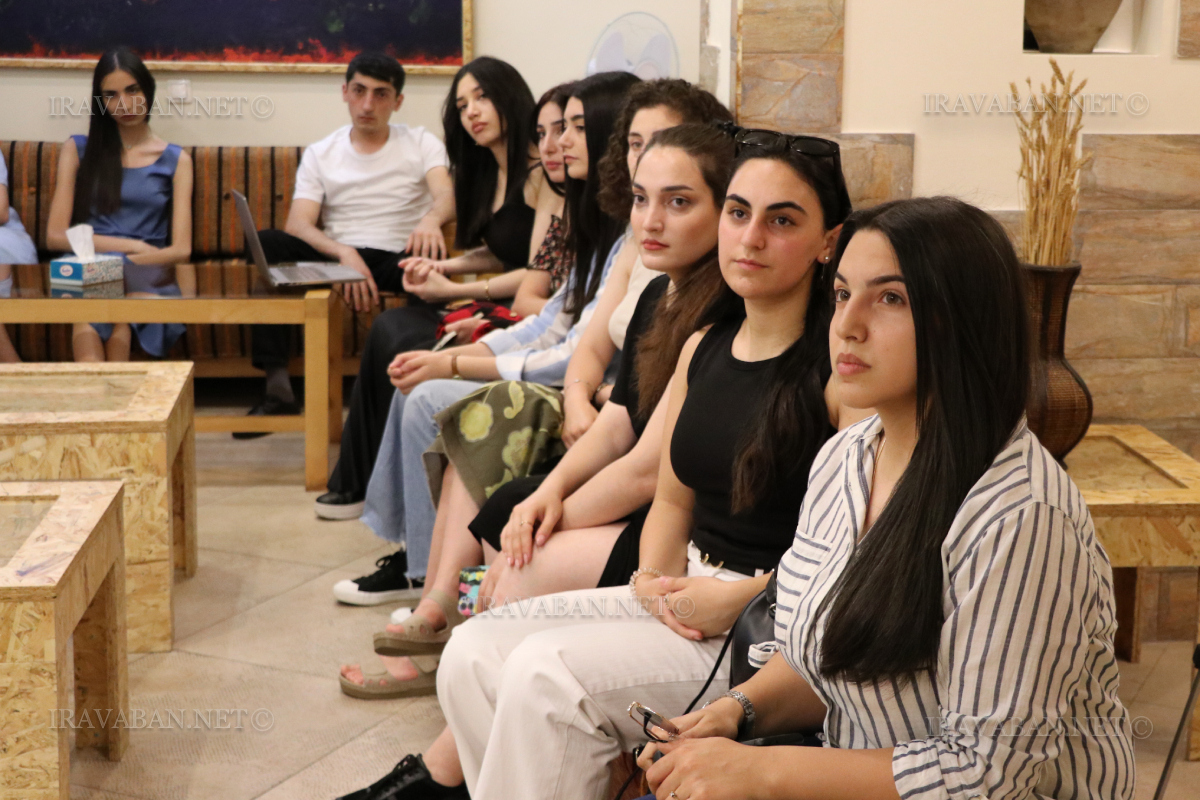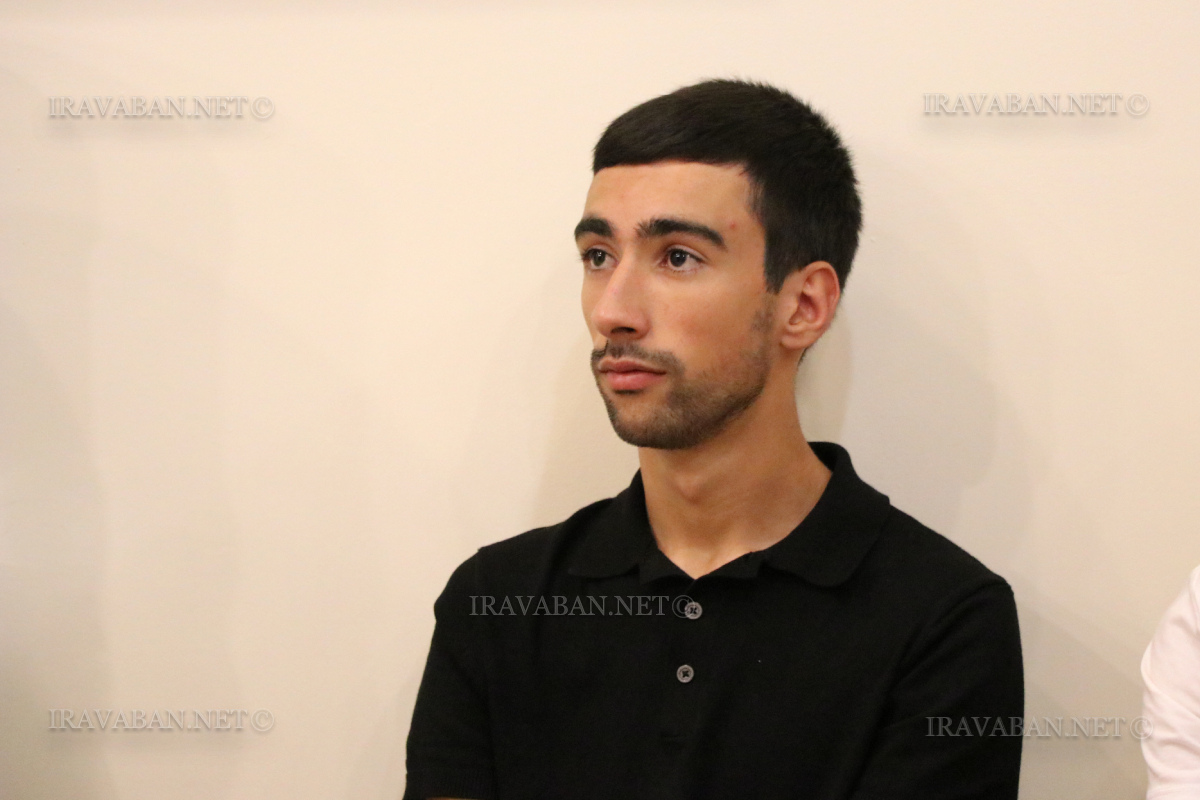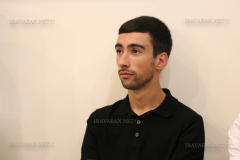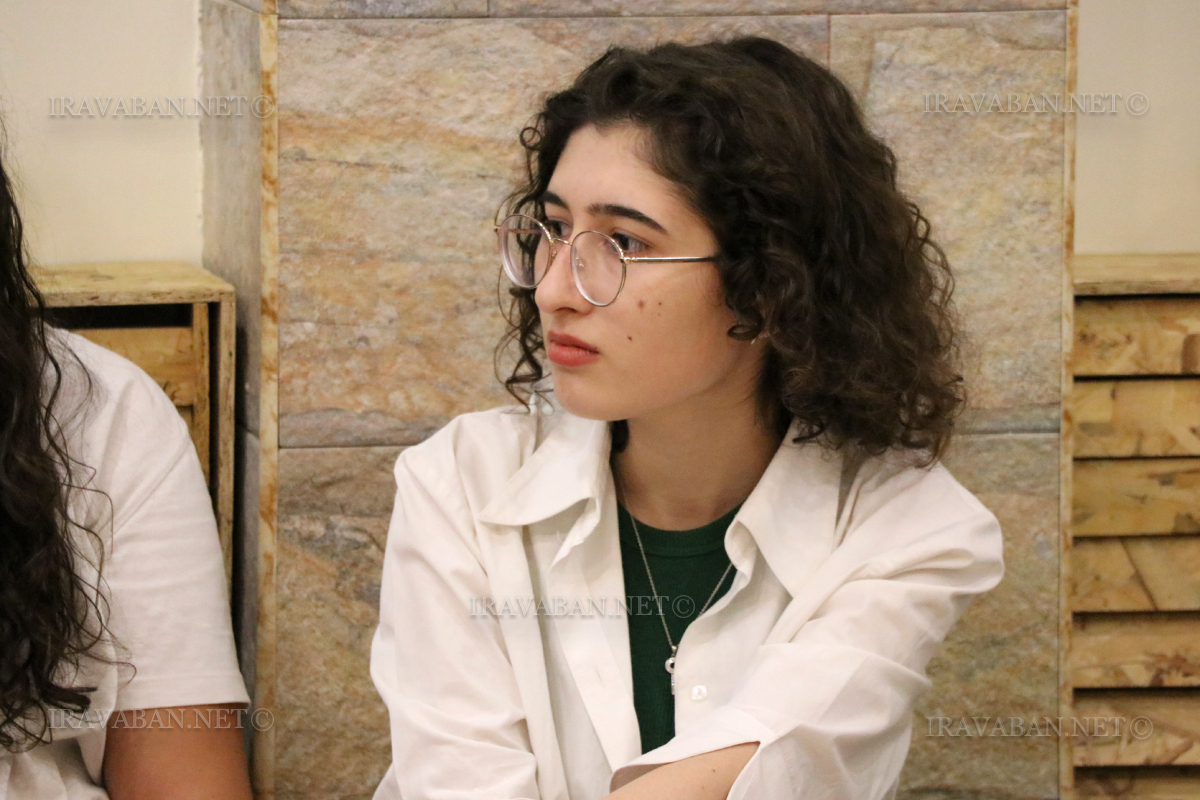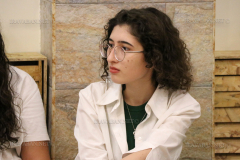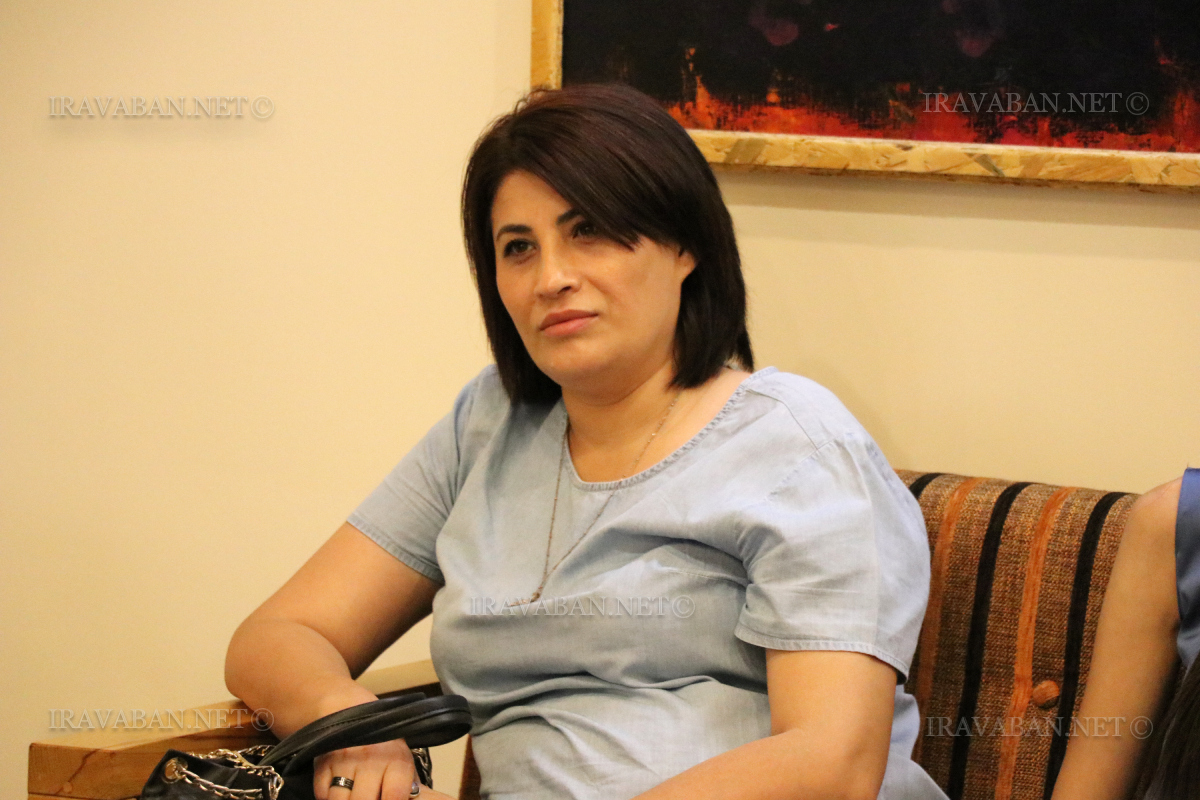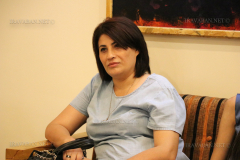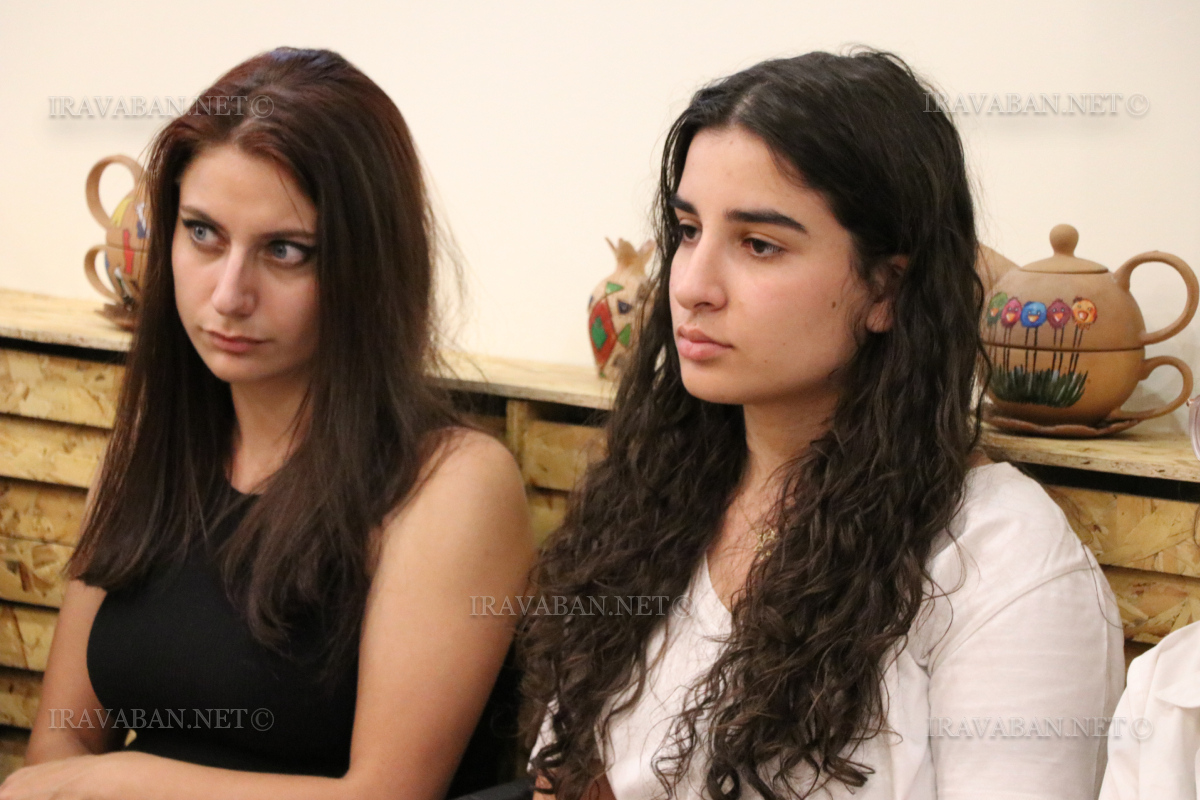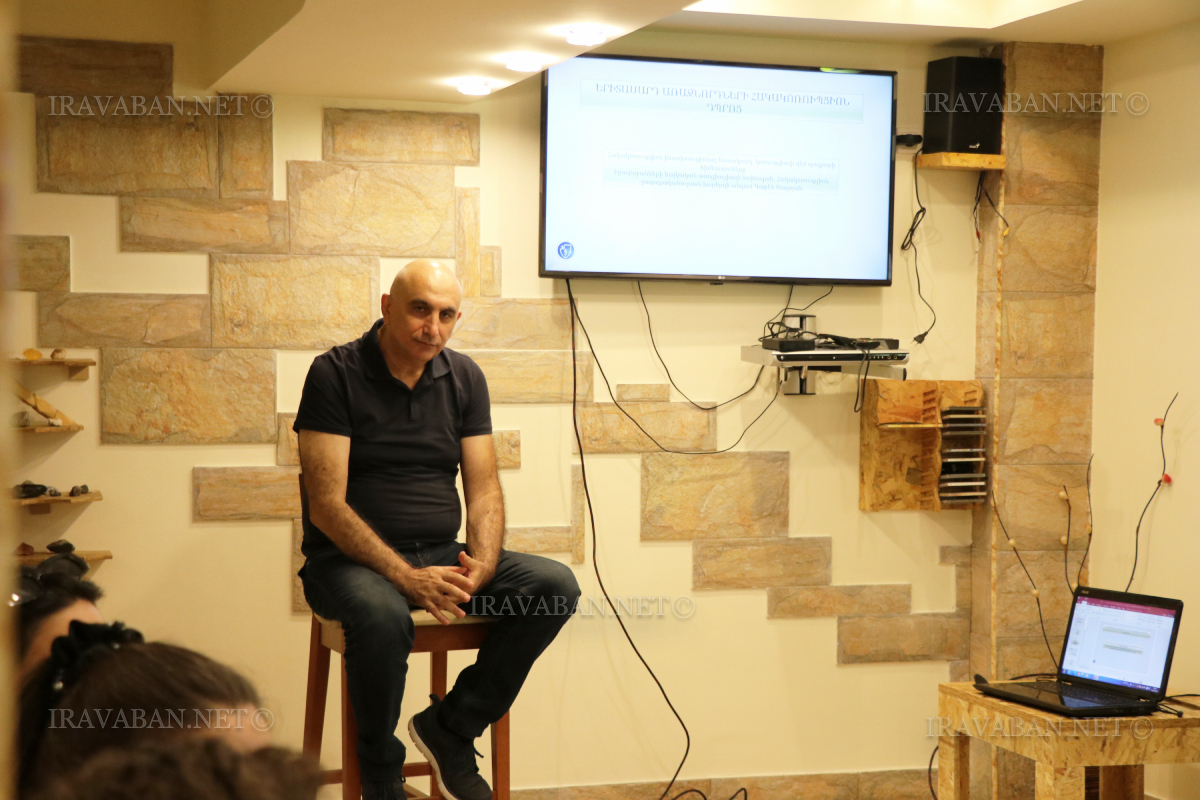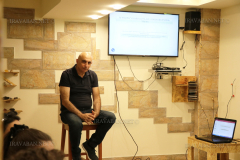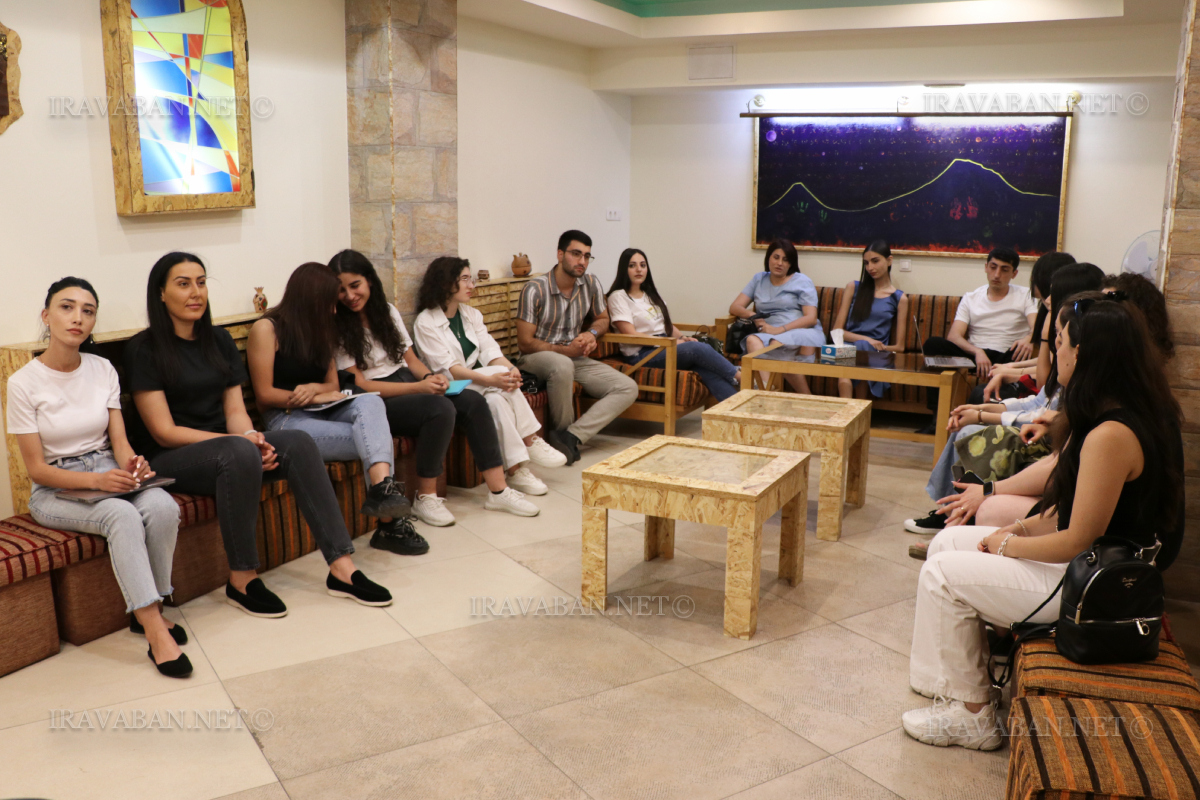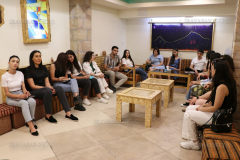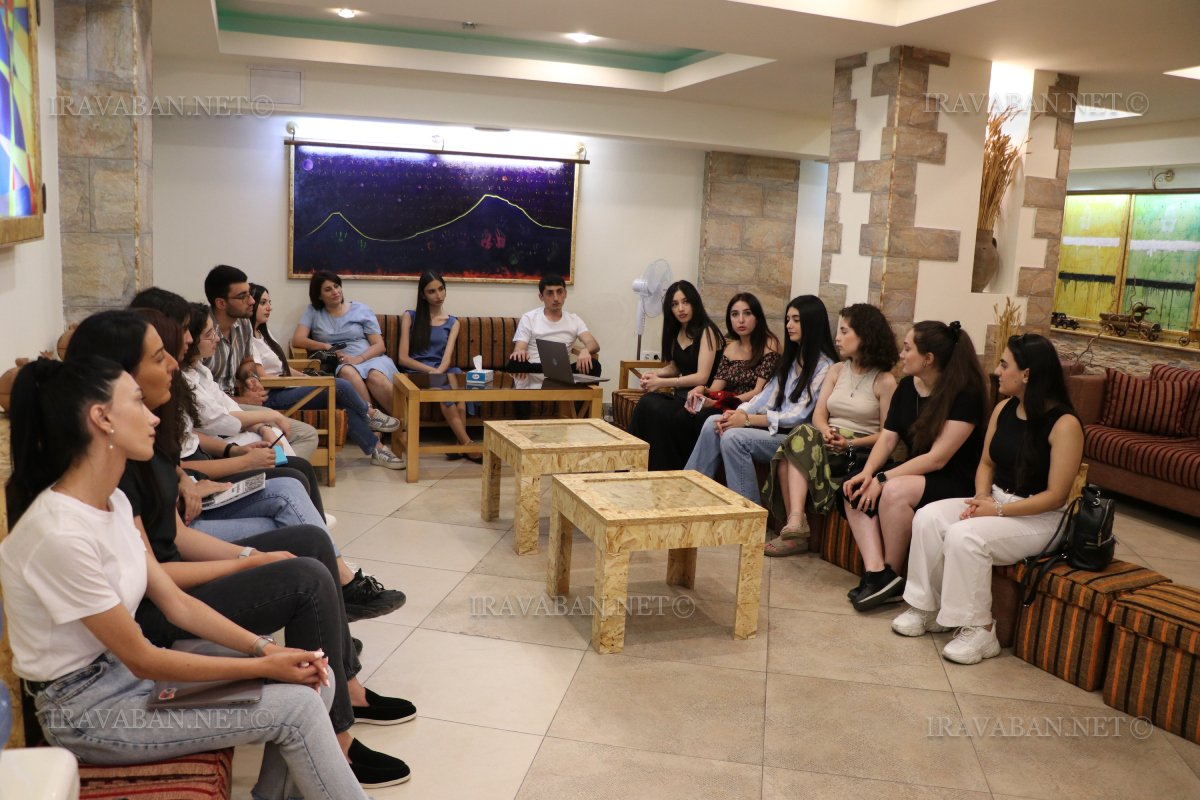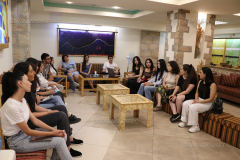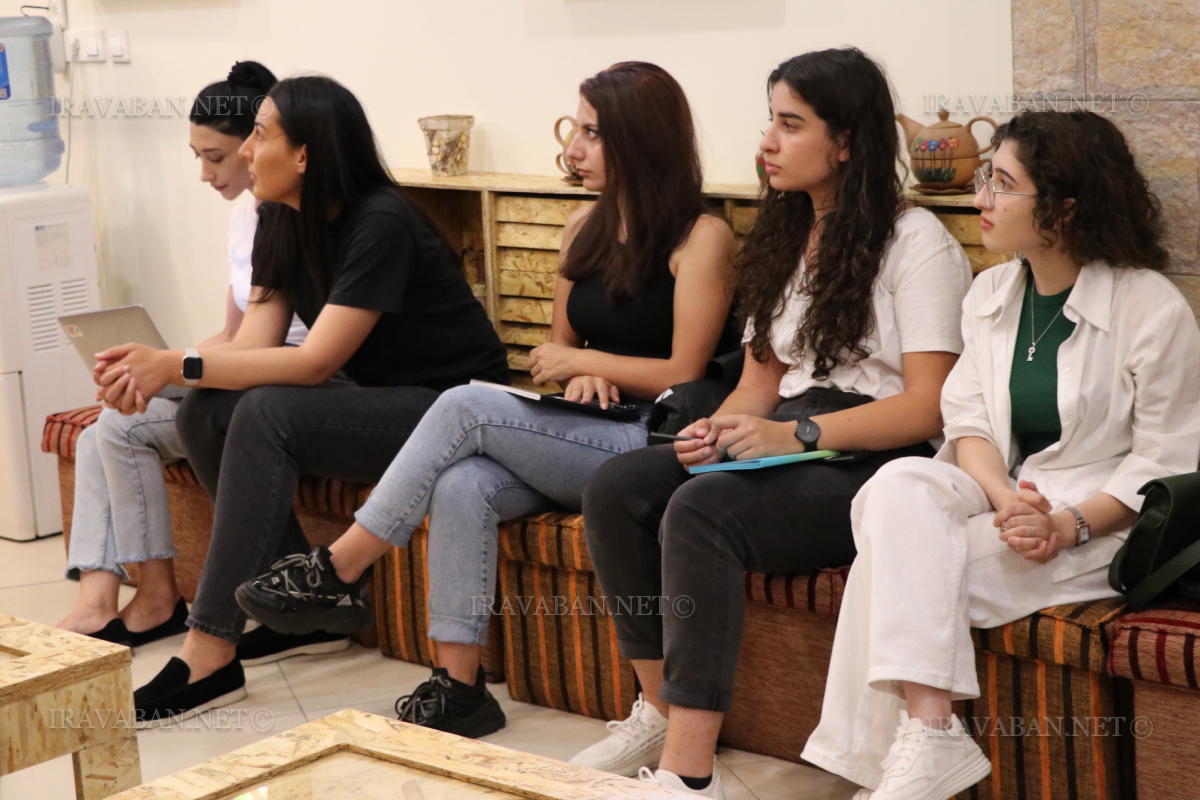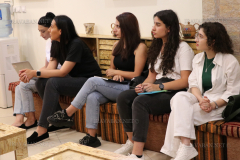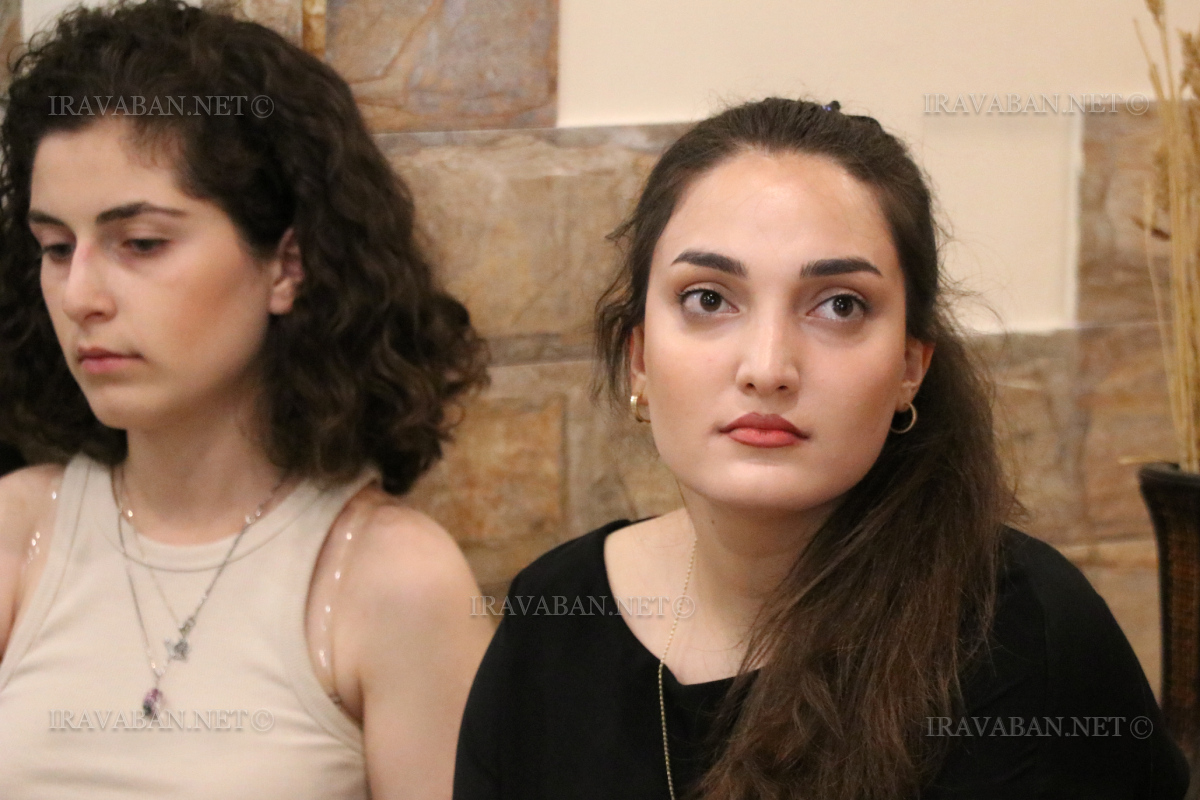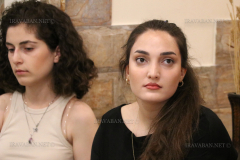On 10 July, the master classes and practical skills development phase of the 9th stream of the Anti-Corruption School for Young Leaders, the 1st anti-corruption professional educational initiative operating in the Republic of Armenia, was launched.
The participants are students of law, management, economics, finance, journalism and other faculties of Armenian universities as well as graduates. This year, the school accepted students from 18 to 43 years old, among whom there are also lawyers, journalists, employees of the judicial system.
Mr. Karen Zadoyan, President of the Armenian Lawyers’ Association, Member of the Anti-Corruption Policy Council, the founder of the Anti-Corruption School, welcomed the attendees and conducted the first master class. He introduced the audience to the pillars of the anti-corruption system, the RA strategies of the anti-corruption sphere and the bodies of the anti-corruption institutional system. Karen Zadoyan mentioned that at this stage, the major problem of the bodies of the Anti-corruption institutional system is the lack of qualified personnel.
The President of the ALA reminded that the 2023-2026 Anti-Corruption Strategy is still under development.
“The 3 pillars of the fight against corruption are anti-corruption education, prevention of corruption and inevitability of punishment. First, it is necessary to educate and show people the danger of corruption, and then to prevent it. For the prevention of corruption, it is important to reduce discretion, increase the efficiency of administration as well as the effective and targeted control. In case of inevitability of punishment, severity is not important. Many believe that the effectiveness of the fight against corruption depends on the severity of the punishment. In contrast to that, the example of China and Hong Kong can be cited. China is inferior to Hong Kong in terms of the perception of corruption. Hong Kong has adopted the three-dimensional approach of anti-corruption education, prevention of corruption and the inevitability of punishment, while China has emphasized the severity of punishment in the fight against corruption,” he said.
Karen Zadoyan informed the listeners that Hong Kong has succeeded thanks to the well-established system of anti-corruption education, which starts in kindergarten. “There will be similar regulations in the new Anti-Corruption Strategy of Armenia.”
The bodies of the anti-corruption system, their structure and activities in the fight against corruption were discussed during the master class as well. The audience asked the speaker a number of questions, including about the corruption perception index and the elimination of systemic corruption.
Karen Zadoyan also reminded that within the framework of this program, national identity will also be important and the students will also study the pillars of national identity within the framework of the school.
“You can be a good specialist; you can have high integrity qualities, but not carry the pillars of national identity: in this case, the usefulness of your activity will not be great for the development of our state,” he emphasized.
Notably, the training in the Anti-Corruption School for Young Leaders will be organized in the following phases:
- ONLINE TRAINING PHASE, during which the students will pass a basic anti-corruption course consisting of 25 topics through the school’s online anti-corruption training platform. Those students who have completed all the knowledge test questionnaires and received the appropriate points for completing the online training will be considered completed the online training phase.
- MASTER CLASS AND PRACTICAL SKILLS DEVELOPMENT PHASE, during which students who have successfully completed the advanced stage of school will be divided into groups and each group will conduct a study, monitoring or investigation on one of the in-depth anti-corruption topics. During this phase, the work will be organized in the form of group meetings, discussions, and meetings with representatives of the sectors and other relevant bodies and organizations. Attendees will learn a range of innovative tools and gain related skills. At this stage, mentoring for groups is planned.
- PUBLIC AWARENESS PHASE, during which students who have successfully completed the practical skills development phase of the school will have the opportunity to disseminate their anti-corruption knowledge among young people through public awareness seminars.
- ADVANCED TRAINING PHASE, during which the best 15-20 participants who have achieved high results in the online training phase of the school, successfully completed the in-depth interview phase and are selected, will participate in the outreach (out of Yerevan) in-depth anti-corruption training. The in-depth training phase of the school will consist of the modules: “Anti-Corruption Advanced Training” and “Pillars of National Identity”.
- FINAL PHASE, during which the students who have successfully completed the practical skills development and public awareness stages of the school, will present their research and public awareness results to the reputable jury and the public.
Students who have passed and successfully graduated from all five phases of the School will be awarded GRADUATION CERTIFICATES of Anti-Corruption School for Young Leaders.
“The Armenian Lawyers’ Association” NGO is organizing the Anti-Corruption School for Young Leaders in cooperation with the CSO Anti-Corruption Coalition of Armenia.
The information partner of the Anti-Corruption School for Young Leaders is Iravaban.net, independent professional news website.







